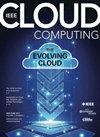AutoDECK: Automated Declarative Performance Evaluation and Tuning Framework on Kubernetes
Q1 Computer Science
引用次数: 1
Abstract
Containerization and application variety bring many challenges in automating evaluations for performance tuning and comparison among infrastructure choices. Due to the tightly-coupled design of benchmarks and evaluation tools, the present automated tools on Kubernetes are limited to trivial microbenchmarks and cannot be extended to complex cloudnative architectures such as microservices and serverless, which are usually managed by customized operators for setting up workload dependencies. In this paper, we propose AutoDECK, a performance evaluation framework with a fully declarative manner. The proposed framework automates configuring, deploying, evaluating, summarizing, and visualizing the benchmarking workload. It seamlessly integrates mature Kubernetes-native systems and extends multiple functionalities such as tracking the image-build pipeline, and auto-tuning. We present five use cases of evaluations and analysis through various kinds of bench-marks including microbenchmarks and HPC/AI benchmarks. The evaluation results can also differentiate characteristics such as resource usage behavior and parallelism effectiveness between different clusters. Furthermore, the results demonstrate the benefit of integrating an auto-tuning feature in the proposed framework, as shown by the 10% transferred memory bytes in the Sysbench benchmark.AutoDECK: Kubernetes上的自动声明性性能评估和调优框架
容器化和应用程序的多样性给自动评估性能调优和基础设施选择之间的比较带来了许多挑战。由于基准测试和评估工具的紧密耦合设计,目前Kubernetes上的自动化工具仅限于琐碎的微基准测试,无法扩展到复杂的云原生架构(如微服务和无服务器),这些架构通常由定制的操作人员管理,以设置工作负载依赖关系。在本文中,我们提出了AutoDECK,一个性能评估框架,具有完全声明的方式。建议的框架可以自动配置、部署、评估、汇总和可视化基准测试工作负载。它无缝地集成了成熟的kubernetes本地系统,并扩展了多种功能,如跟踪映像构建管道和自动调优。我们通过各种基准测试(包括微基准测试和HPC/AI基准测试)提出了五个评估和分析用例。评估结果还可以区分不同集群之间的资源使用行为和并行效率等特征。此外,结果证明了在提议的框架中集成自动调优特性的好处,如Sysbench基准测试中传输的10%内存字节所示。
本文章由计算机程序翻译,如有差异,请以英文原文为准。
求助全文
约1分钟内获得全文
求助全文
来源期刊

IEEE Cloud Computing
Computer Science-Computer Networks and Communications
CiteScore
11.20
自引率
0.00%
发文量
0
期刊介绍:
Cessation.
IEEE Cloud Computing is committed to the timely publication of peer-reviewed articles that provide innovative research ideas, applications results, and case studies in all areas of cloud computing. Topics relating to novel theory, algorithms, performance analyses and applications of techniques are covered. More specifically: Cloud software, Cloud security, Trade-offs between privacy and utility of cloud, Cloud in the business environment, Cloud economics, Cloud governance, Migrating to the cloud, Cloud standards, Development tools, Backup and recovery, Interoperability, Applications management, Data analytics, Communications protocols, Mobile cloud, Private clouds, Liability issues for data loss on clouds, Data integration, Big data, Cloud education, Cloud skill sets, Cloud energy consumption, The architecture of cloud computing, Applications in commerce, education, and industry, Infrastructure as a Service (IaaS), Platform as a Service (PaaS), Software as a Service (SaaS), Business Process as a Service (BPaaS)
 求助内容:
求助内容: 应助结果提醒方式:
应助结果提醒方式:


